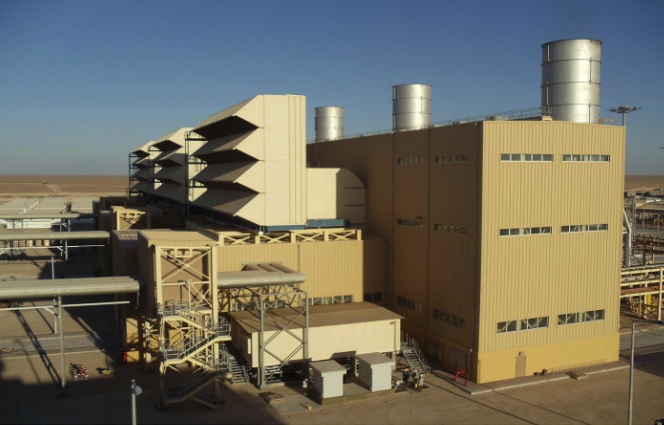By Libya Herald reporter.

Beida, 14 August 2015:
Sarir power station in eastern Libya has now fully shut down because of a strike . . .[restrict]by drivers transporting diesel fuel to the plant.
“Production stopped on Wednesday after almost two weeks of struggle to maintain output,” Sarir power station manager, Hashim Al-Malki, told the Libya Herald.
Some 25 trucks a day had been driven from Brega, Ras Al-Minghar (Benghazi) and Tobruk down to Sarir to fuel two of the plant’s three turbines. (The third turbine has been out of action since it was hit in an attack in February last year.) But the drivers had stopped delivering a fortnight ago, Al-Malki explained, because of constant assaults on them by militia guards at Checkpoint 60, 60 kilometres south of Ajdabiya. The drivers, he said, had complained about assaults by the guards at the Checkpoint 60 but there had been no response from anyone, so they finally decided to go on strike.
The guards are believed to be members of the Zwai tribe from Ajdbaiya. Although it is claimed that they are sympathetic to Libya Dawn, it is thought the real reason is that they are looking for money and hope to be bought off by the government in Beida.
The deliveries had enabled the two turbines to produce just over 400 MW, but that when down to 70 MW once the strike started, as the station used up reserve fuel supplies. These were now exhausted.
Even before the strike, maintaining the plant had been a major effort, Al-Malki said. There had been no delivery of spares from the German manufacturers since the revolution, he said.
“The GECOL engineers at the Sarir have done incredible work since the beginning of the revolution in 2011. But we lack spare parts, although we managed to keep the facility at work. But we can not keep it going without fuel,” he complained.
Last week, the head of the internationally-unrecognised government in Tripoli, Khalfa Ghwell, had claimed that Sarir would be one of the sources for an extra 950 MW being added to the national electricity grind and so reduce power outages significantly. They have reduced, to about six hours a day in the capital, but most of that is thought to result from the closure of the Lisco iron and steel works in Misrata and its power station output being added to the grid. [/restrict]







